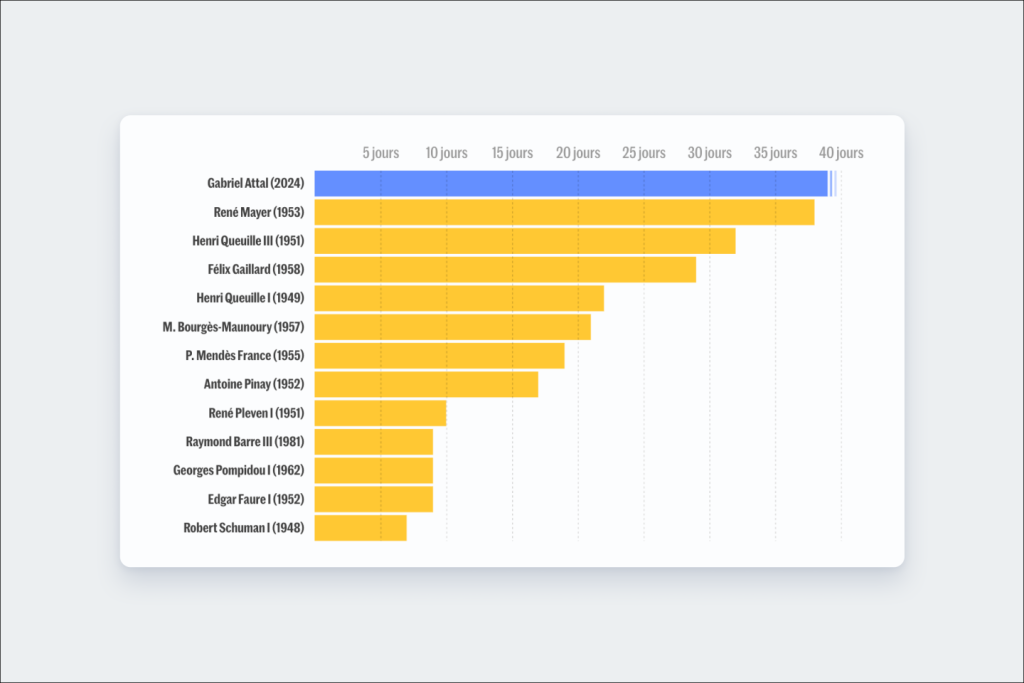On August 24th, it has been thirty-nine days since the resignation of the Attal government was accepted by President Emmanuel Macron. The Prime Minister and his team have been managing the “current affairs” since then, waiting for a government to be formed from the legislative elections on June 30th and July 7th. This period of transition between two governments has surpassed nine days for the first time since the advent of the Fifth Republic in 1958. The longest transition period before this was set by the Pompidou government in 1962, lasting nine days. However, some argue that the period should be counted differently, taking into account the vote of no confidence on October 5, 1962.
The current period of transition is even longer than the record of thirty-eight days set by the Mayer government in 1953, under the Fourth Republic. The Fifth Republic was specifically designed to address the instability of its predecessor, the Fourth Republic, which saw twenty-four governments come and go in just twelve years (1946-1958). The Fourth Republic was known for its parliamentary dominance, with the Parliament closely controlling the government within a fragmented National Assembly divided into three major factions. Governments were frequently overthrown or forced to resign due to the lack of means to bypass the Assembly, as the 49.3 procedure did not exist, leaving them an average of thirteen days in office to manage current affairs.
Despite the extended period of transitional government, the Attal government is still far from competing with other parliamentary systems. For example, Belgium went for 541 days without a full-fledged government in 2010-2011, Lebanon endured 396 days in 2020-2021, and Spain experienced 121 days in 2023 without a government. In 2024, France is not alone in facing this situation, as Belgium has also been without a government since the legislative elections on June 9th, 2024, for seventy-six days. Both countries are being managed by transitional governments, causing concern among Belgians about parliamentary instability in their French neighbors.
The prolonged period without a fully functioning government raises questions about the effectiveness of managing current affairs in transition. The Attal government’s tenure on hold is historic within France, but other countries have faced longer periods without stable governance. The impact of this transition on the daily functioning of the country and the potential risks associated with prolonged political uncertainty are key concerns for citizens. The situation in France is mirrored in other European countries, highlighting the need for stable and efficient government formation processes in parliamentary democracies.
As the waiting continues for the formation of a new government in France, comparisons with other countries experiencing similar transitional phases reveal the varying degrees of political stability and governance challenges faced by different nations. The history of government transitions and the current situation in France shed light on the complexities and potential pitfalls of the democratic process. Addressing the issues of parliamentary instability and prolonged government transitions requires careful consideration of constitutional frameworks, political alliances, and public perceptions to ensure effective governance and decision-making in the face of political uncertainty.














